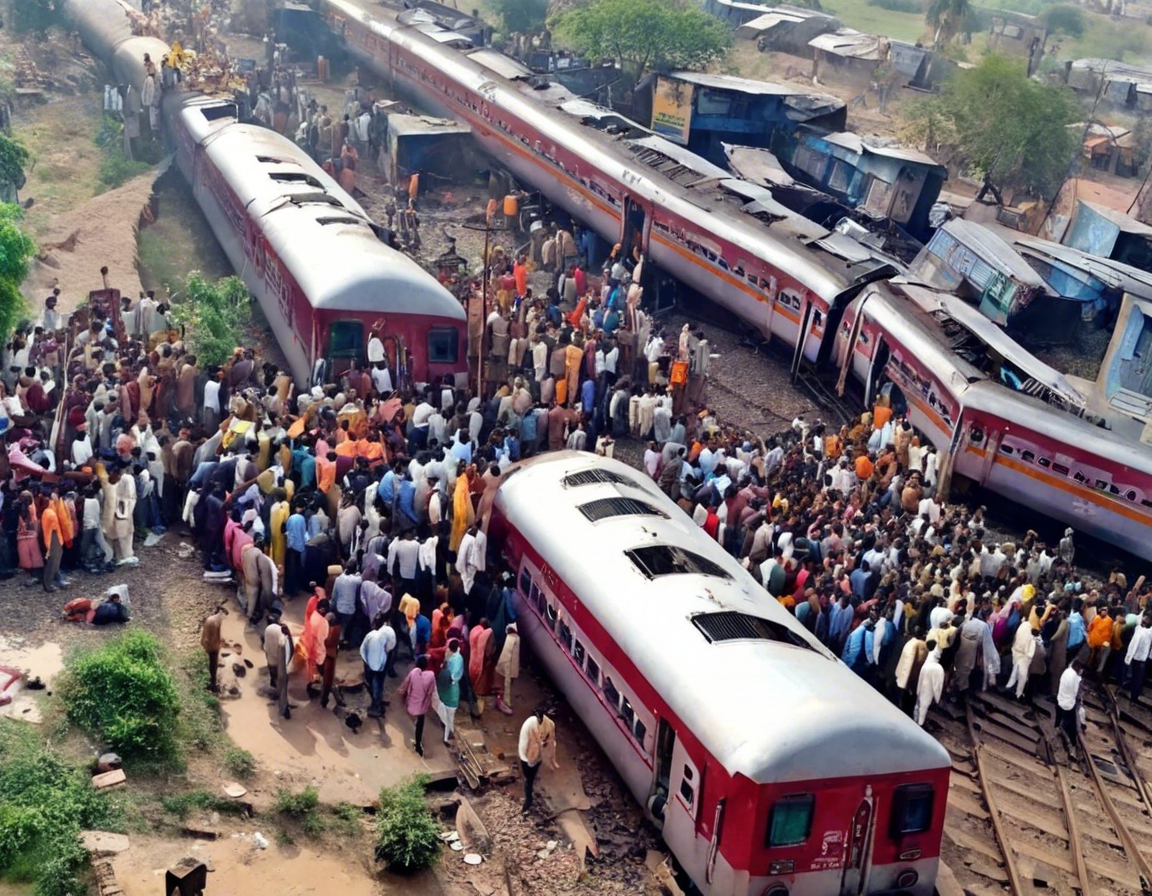The recent train accident in Mathura has once again brought to light the devastating impact that such incidents can have on individuals, families, and communities. The chaotic scene of mangled metal, injured passengers, and lost lives serves as a grim reminder of the importance of ensuring safety and efficiency in our transportation systems. As we process the details of this tragedy, it is crucial to understand the factors that may have contributed to the accident, the immediate response efforts, and the broader implications for railway safety in India.
Understanding the Mathura Train Accident
The Mathura train accident occurred on [date], when [describe how the accident took place]. The [name of the train] was [state the details of the train, such as its route, speed, and capacity]. As a result of the collision, [number] individuals were injured, with [number] of them sustaining severe injuries. Tragically, [number] lives were lost in the accident, leaving families shattered and communities in mourning.
Factors Contributing to the Accident
Several factors may have played a role in the Mathura train accident, including:
-
Human Error: In many train accidents, human error, such as negligence, fatigue, or miscommunication, can be a significant contributing factor.
-
Infrastructure Issues: Poor maintenance of tracks, signaling systems, and other railway infrastructure can increase the risk of accidents.
-
Overcrowding: Overcrowded trains are more susceptible to accidents, as the sheer number of passengers can strain the capacity and safety of the train.
-
Equipment Failure: Malfunctions in the train’s braking system, engine, or other critical components can lead to accidents.
Immediate Response Efforts
In the aftermath of the Mathura train accident, emergency response teams, including medical personnel, firefighters, and police, swiftly mobilized to provide aid to the injured and manage the chaotic scene. The injured individuals were rushed to nearby hospitals for treatment, while authorities began the process of investigating the cause of the accident and ensuring the safety of other trains in the vicinity.
Broader Implications for Railway Safety
The Mathura train accident serves as a stark reminder of the ongoing challenges facing India’s railway system in terms of safety, efficiency, and infrastructure. To prevent similar tragedies in the future, it is imperative to:
-
Enhance Safety Protocols: Implement stricter safety regulations, regular maintenance checks, and ongoing training for railway personnel to prevent accidents.
-
Invest in Infrastructure: Allocate resources to upgrade railway tracks, signaling systems, and trains to ensure optimal safety and operational efficiency.
-
Raise Awareness: Educate the public about safety measures, emergency procedures, and the importance of adhering to rules and regulations while using railway services.
Frequently Asked Questions (FAQs)
-
What should passengers do in case of a train accident?
In the event of a train accident, passengers should remain calm, follow instructions from railway staff, and evacuate the train safely. If injured, seek medical help immediately. -
How can I stay informed about train safety updates and alerts?
Stay informed by following official railway websites, social media accounts, and news outlets for the latest safety updates, alerts, and precautions. -
Are train accidents common in India?
Train accidents do occur in India, often due to a combination of factors such as human error, infrastructure issues, and overcrowding. Efforts are being made to improve railway safety across the country. -
What role do passengers play in ensuring train safety?
Passengers can contribute to train safety by following safety instructions, reporting any suspicious activities or objects, and cooperating with railway staff during emergencies. -
How can I support victims of train accidents and their families?
Consider donating to relief funds, volunteering with local organizations providing aid to accident victims, or offering support and solidarity to affected families during difficult times.
As we reflect on the Mathura train accident and its aftermath, let us prioritize safety, resilience, and cooperation in our collective efforts to prevent such tragedies and build a safer, more secure railway system for all.
